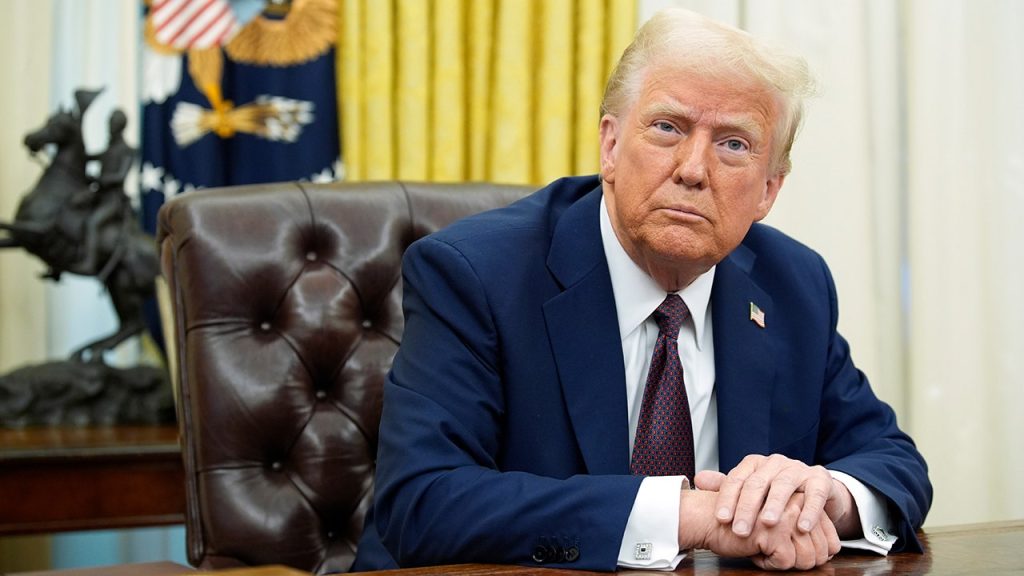Paragraph 1: Trump Claims Credit for Airstrikes Targeting ISIS in Somalia
Former President Donald Trump announced on Saturday that he authorized airstrikes in Somalia, targeting a senior ISIS attack planner and other recruited terrorists. Trump, using his social media platform Truth Social, declared that the strikes, which destroyed the caves the terrorists were inhabiting, eliminated a threat to the United States and its allies. He emphasized that no civilians were harmed in the operation. Trump contrasted his decisive action with what he perceived as the Biden administration’s inaction, claiming that he had ordered the strikes because Biden and his associates had failed to act quickly enough against the ISIS threat. He further asserted that these strikes send a clear message to ISIS and any other groups contemplating attacks against Americans: "WE WILL FIND YOU, AND WE WILL KILL YOU!"
Paragraph 2: Official Confirmation and Details from Secretary of Defense Hegseth
Secretary of Defense Pete Hegseth provided additional details about the airstrikes, confirming they were executed by U.S. Africa Command in collaboration with the Somali government. He stated that the strikes targeted ISIS-Somalia operatives in the Golis Mountains. While initial assessments indicated multiple operatives were killed and no civilians were harmed, a complete evaluation of the impact was ongoing. Hegseth emphasized the importance of these strikes in degrading ISIS’s ability to plan and execute terrorist attacks against U.S. citizens, partners, and innocent civilians. He positioned the strikes as a demonstration of America’s commitment to eliminating terrorist threats both domestically and internationally.
Paragraph 3: Somali Government’s Response and Historical Context of US Airstrikes
An official within the Somali president’s office, speaking anonymously, confirmed the airstrikes to Reuters and expressed the Somali government’s support for the action, underscoring the nation’s determination not to become a haven for terrorists. The official added that the full impact of the strikes was still under assessment. The United States has a long history of conducting airstrikes in Somalia under both Republican and Democratic administrations, targeting various terrorist groups, including Islamic State militants. In 2022, a joint US-Somali operation resulted in the deaths of three ISIS members.
Paragraph 4: Trump’s Rhetoric and Political Context
Trump’s forceful rhetoric and self-proclaimed decisive action come amidst a backdrop of heightened political polarization and ongoing debates about national security. His claims of Biden’s inaction serve to bolster his own image as a strong leader willing to take decisive military action while simultaneously criticizing his political opponents. This narrative aligns with his previous pronouncements on counterterrorism and his broader "America First" foreign policy agenda. The timing of the announcement, following a recent ISIS-inspired attack in New Orleans, further underscores the sensitive political climate surrounding national security issues.
Paragraph 5: Impact and Implications of the Airstrikes
The long-term impact of these airstrikes on ISIS’s operational capabilities in Somalia remains to be seen. While the elimination of a senior attack planner and other operatives undoubtedly disrupts the group’s network, the extent of the disruption is difficult to gauge immediately. Furthermore, the potential for retaliatory attacks from ISIS or other extremist groups in the region cannot be discounted. The airstrikes also highlight the ongoing challenges posed by extremist groups in Somalia and the continued need for international cooperation to combat terrorism.
Paragraph 6: The Importance of International Collaboration and Future Counterterrorism Efforts
The coordinated nature of the airstrikes, involving both U.S. forces and the Somali government, underscores the importance of international collaboration in counterterrorism efforts. The Somali government’s support for the strikes signals a shared commitment to eradicating extremist groups within its borders. Moving forward, sustained cooperation between international partners will be crucial in addressing the root causes of terrorism, preventing further radicalization, and building a more secure and stable future for the region. The incident also highlights the enduring threat posed by ISIS, despite significant territorial losses in recent years, and its continued ability to inspire and direct attacks globally.

